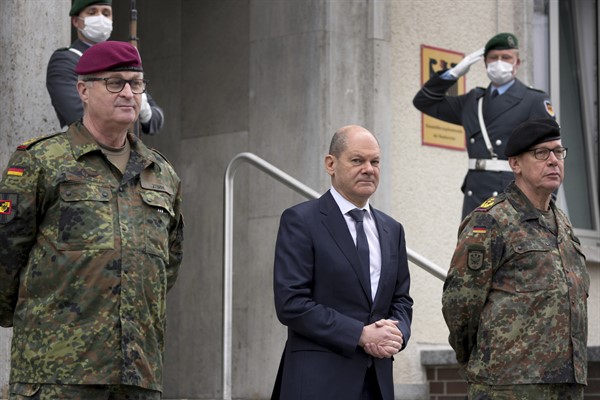On Feb. 27, nothing less than a revolution took place in Germany. In a 30-minute speech to parliament, Chancellor Olaf Scholz overturned all the old certainties that have dominated German security policy for over 30 years. He replaced them with an ambitious agenda that had defense, a topic with which Germany normally only reluctantly engages, at its core.
Since the end of the Cold War, Germany has not felt threatened militarily. As a result, Berlin has felt little urgency to invest in its military and was reluctant to engage in the various military operations of the post-Cold War period. Where Germany did engage militarily—with troop deployments on NATO’s eastern flank, combat forces in Afghanistan or military trainers in Mali, for instance—it was largely to express solidarity with NATO allies, in the former two cases, and with France, a NATO ally and close European Union partner, in the latter. That’s not to say that Germany never took threats seriously, when it came to concerns over climate change, migration and even its economic wellbeing, for instance. But the same was never true with regard to military and security threats.
The annexation of Crimea in 2014 was the first wakeup call for Berlin that something had changed in European security: Russia forced Europe to think once again about power politics and old concepts like collective defense and deterrence. As a result, Germany timidly engaged in rethinking its defense policies. It increased its defense budget considerably, from 33 billion euros in 2013 to 47 billion euros in 2021. Beyond the increased spending, Berlin published a new defense White Paper in 2016 that enshrined the return to collective defense as a focus of national security policy. It subsequently adapted its armed forces to that objective and committed itself to NATO’s deterrence and defense measures in the east, including by leading a NATO-enhanced forward presence force in the Baltics.

